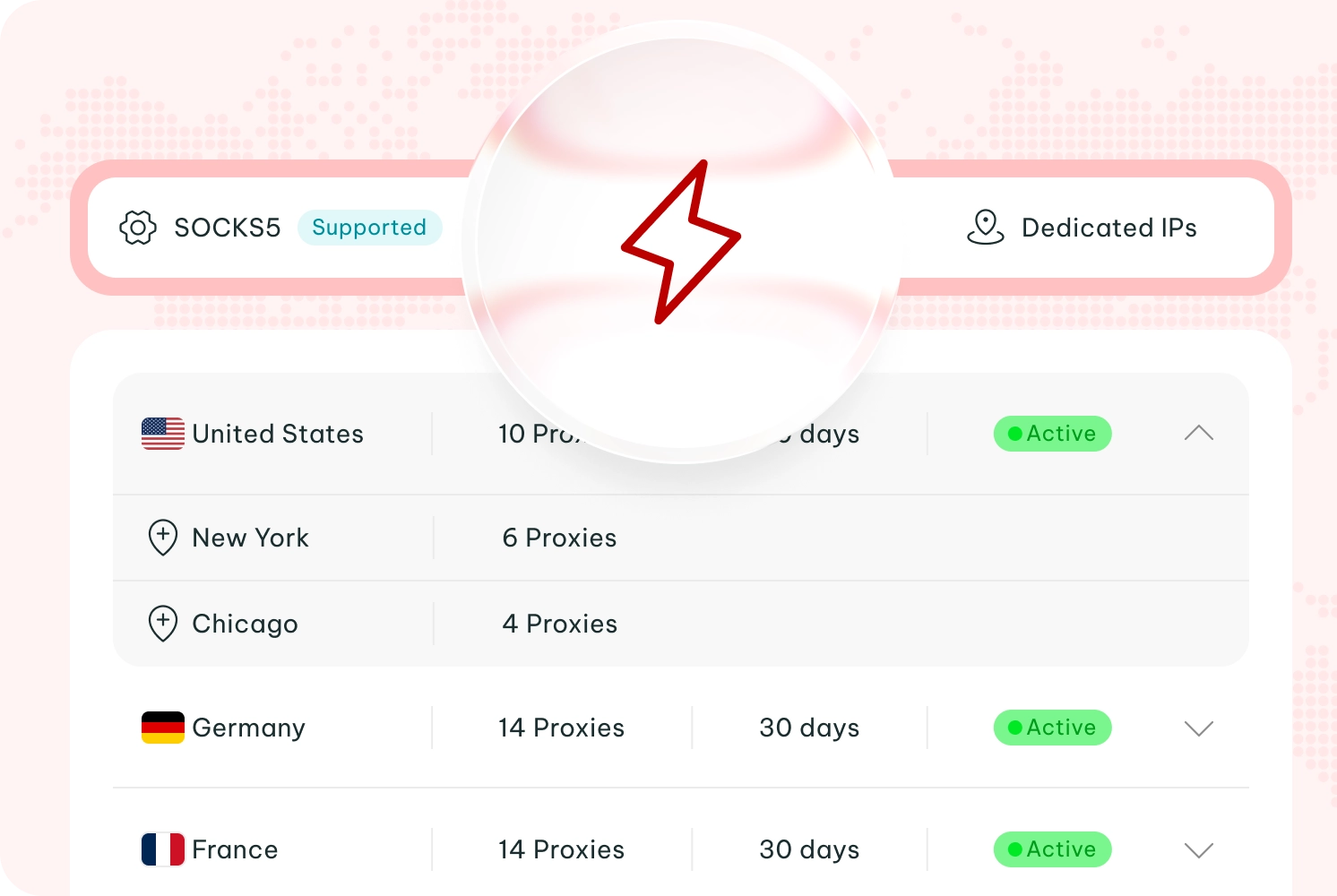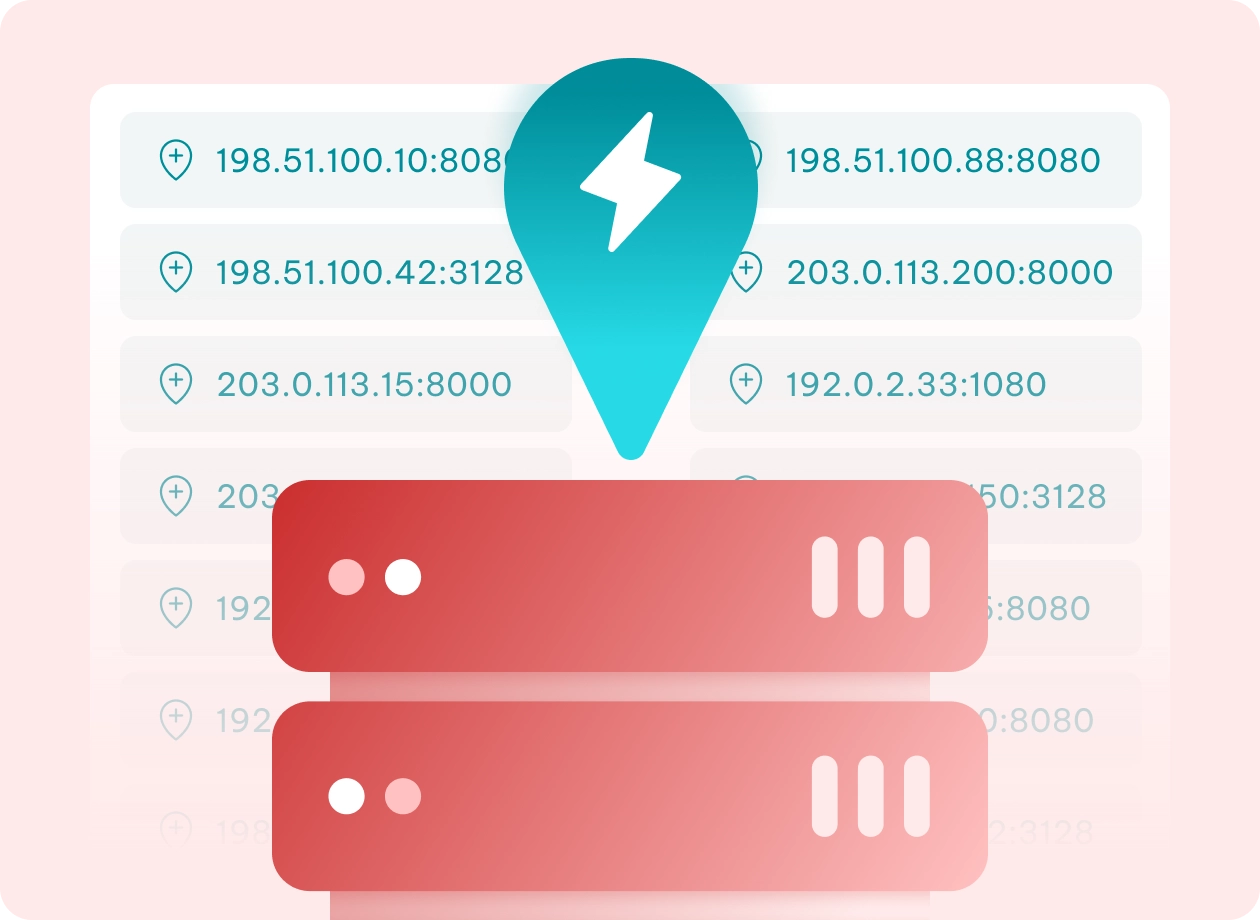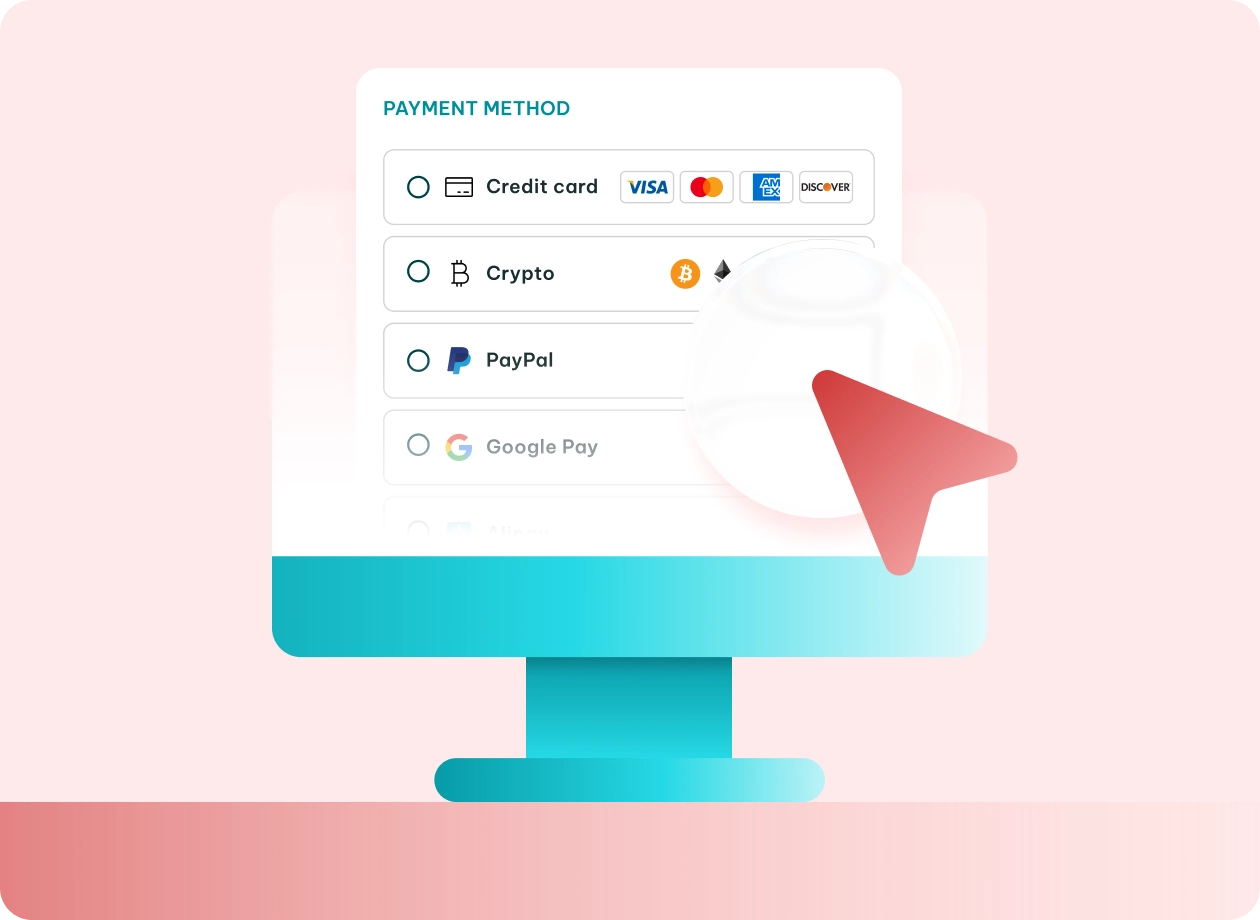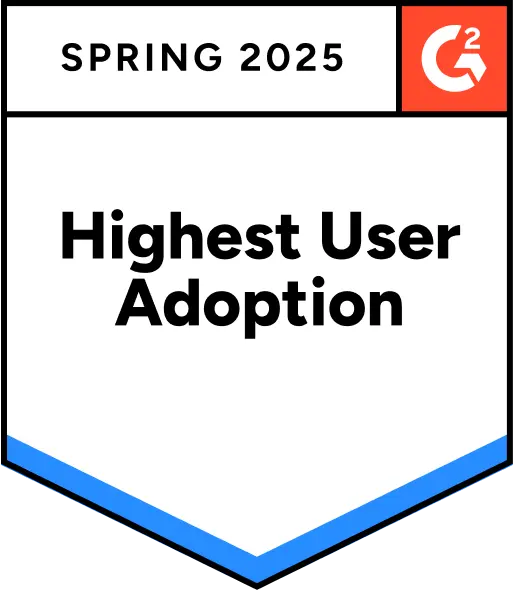ISP Proxies with Premium Residential IPs
ISP proxies combine the features of datacenter and residential proxy networks, resulting in a hybrid option with residential trustworthiness and datacenter speed
- 500K+ unique IPs
- Ethically-sourced from 31+ countries
- Country, state, and city-level targeting

As seen on
Top ISP Proxy Server Locations
- United StatesUS135,681 IPs
- United KingdomGB77,724 IPs
- FranceFR45,921 IPs
- GermanyDE45,488 IPs
- AustraliaAU17,097 IPs
- SpainES15,923 IPs
- PolandPL15,002 IPs
- CanadaCA14,862 IPs
- NetherlandsNL13,485 IPs
- AustriaAT13,247 IPs
- BrazilBR10,482 IPs
- ItalyIT8,420 IPs
- JapanJP8,402 IPs
- DenmarkDK8,236 IPs
- SwedenSE7,394 IPs
- SingaporeSG7,293 IPs
- Hong KongHK7,047 IPs
- Czech RepublicCZ6,200 IPs
- BelgiumBE6,032 IPs
- RomaniaRO5,348 IPs
- SwitzerlandCH5,038 IPs
- New ZealandNZ4,899 IPs
- IrelandIE4,024 IPs
- LithuaniaLT3,682 IPs
- PortugalPT3,649 IPs
- GreeceGR3,053 IPs
- FinlandFI3,044 IPs
- Moldova, Republic OfMD2,878 IPs
- LuxembourgLU2,505 IPs
- NorwayNO2,503 IPs
- LatviaLV2,459 IPs
- Taiwan, Province Of ChinaTW2,354 IPs
- TurkeyTR2,005 IPs
- ThailandTH1,860 IPs
- SerbiaRS1,621 IPs
- SlovakiaSK1,620 IPs
- CroatiaHR1,588 IPs
- ColombiaCO1,256 IPs
- SloveniaSI1,002 IPs
Buy ISP Proxies
Tailored pricing solutions for businesses of all sizes
24 Hours
Starting from
Test high-speed ISP proxies with no long-term commitment
30 Days
Starting from
Ideal for daily workflows and account management
Most popular
60 Days
Starting from
Reliable, uninterrupted sessions for ongoing projects
90 Days
Starting from
Long-term stability for teams and high-volume operations
Need Enterprise-Scale Proxies? Contact Us for Custom Plans.
Best proxy servers 2025
Why Choose ISP Proxies?

Premium ISP Proxies
Get the benefits of a datacenter proxy while maintaining the legitimacy of residential proxies. Our proxy network is sourced from premium Internet Service Providers – a great option for those who value quality. Our ISP proxies will work with any use case, whether it’s web scraping, ad verification, or something else
-
Unlimited traffic
Whether you buy a single proxy server or many, we’ll only charge you per IP address
-
SOCKS5 support
Connect to your ISP proxy through your preferred protocol: HTTP(S) or SOCKS5

Intuitive Self-Service
Get complete control over your ISP proxies. Add more static residential proxies to your pool, get in-depth usage statistics, and transparent pricing – all available in just a single click
- Detailed data usage insights
- Many payment methods
- 31+ locations
- And much more
Code Integration
Integrate with our examples and conveniently use our proxies without confining yourself to one integration method
curl -X GET "https://apid.iproyal.com/v1/reseller/balance" \
-H "X-Access-Token: <your_access_token>" \
-H "Content-Type: application/json"
IPRoyal ISP Proxy Features
REVIEWS
Trustworthy ISP Proxies
Our goal is to create reliable proxies that can match even the strictest of requirements. We strive to create the best static residential proxies for businesses of all sizes, use cases (i.e., scraping, ad verification, etc.), and needs
IPRoyal has a far more extensive collection of features than your standard web proxy, including over 195 countries of coverage, more than thirty two million IP addresses to select from at the highest-tier plan, and additional options like timed auto-rotation of your IP and instant IP changes.
IPRoyal is dedicated to transparency and to providing best-in-class service to their customers through a variety of affordable solutions and plans that come with round-the-clock support.
With a selection of different subscription options, some of the most affordable prices we’ve seen, and a responsive support team, IPRoyal rises to the top as a leading proxy service provider.
10,000+ Clients Trust Us
Trusted & Secured Proxy Network
Meet the Team
The People Driving Proxy Innovation

Karolis Toleikis
Chief Executive Officer

Mindaugas Čaplinskas
Co-Founder

Julius Narkus
Chief Marketing Officer

Nerijus Kriaučiūnas
Head of DevOps

Karolina Jonutytė
Head of HR

Justas Vitaitis
Senior Software Engineer

Ignas Platukis
Head of Sales

Karolina Sokolovaitė
General Counsel

Vilius Dumčius
Product Owner

Kazys Toleikis
Head of Client Support
How Are Companies Using Our ISP Proxies?
Frequently Asked Questions
What are ISP proxies?
An ISP proxy (also known as a static residential proxy or residential ISP proxy) is a residential IP acquired directly from an Internet Service Provider. While they are hosted in data centers with all the speed and reliability benefits, their IPs are provided by ISPs, so they seem like regular internet users.
How do ISP proxies work?
Every ISP proxy server is leased directly from ISPs, which host them in data centers. ISPs, however, have the power to assign IPs to devices, so they can assign household IPs to their proxies.
As such, when you buy an ISP proxy, you get a combination of datacenter and residential proxies, receiving the benefits of both while getting none of the drawbacks.
What is the difference between datacenter and ISP proxies?
Regular datacenter proxies are created in a server with a single parent device providing IP addresses to the entire pool, making them easy to detect since websites can see that the traffic is coming from a server.
Static ISP proxies use the same process, but the ISP provides household IPs, making it seem as if the traffic is coming from a regular device, making them perfect for more demanding use cases such as web scraping.
What is the difference between residential and ISP proxies?
A residential proxy is created in household devices by users who want to share their internet traffic. Maintaining the same IPs is difficult as users can freely disable the service, their internet, or the device, and the internet speed isn’t always as good.
ISP proxies (also called static residential proxies) get their IPs directly from ISPs, so they’re no different from a residential proxy in that regard; however, they are sourced from servers, which are completely stable and have top-notch internet speeds.
Do ISP proxies support unlimited sessions?
Yes, with IPRoyal, you always get unlimited concurrent sessions and traffic with ISP proxies.
Make sure to check if you’re using static ISP proxies or rotating ones. With static ISP proxy servers you get long-acting ISP setups and sessions that stay more consistent, while rotating ones may be better for large scraping projects.
The best ISP proxy providers will let you choose what type of proxies you want to use.
Which ASN providers are included in ISP proxies?
ISP proxies source their IP addresses from various Internet Service Providers, which are typically registered under different ASN. Common ASN providers are Comcast, AT&T, Verizon, and more.
Are ISP proxies safe for enterprise use?
Yes, they are generally safe for enterprise use, especially if you’re getting them from trusted proxy providers. The best ISP proxies provide a hybrid solution between residential IP proxies’ authenticity and datacenter speed. It makes them a great option for ad verification, web scraping, social media management, and more.
How fast are ISP proxies compared to datacenter proxies?
ISP servers maintain the balance between speed and legitimacy, which makes them a bit slower than pure datacenter proxies, but they’re faster than most residential proxy services.

















































